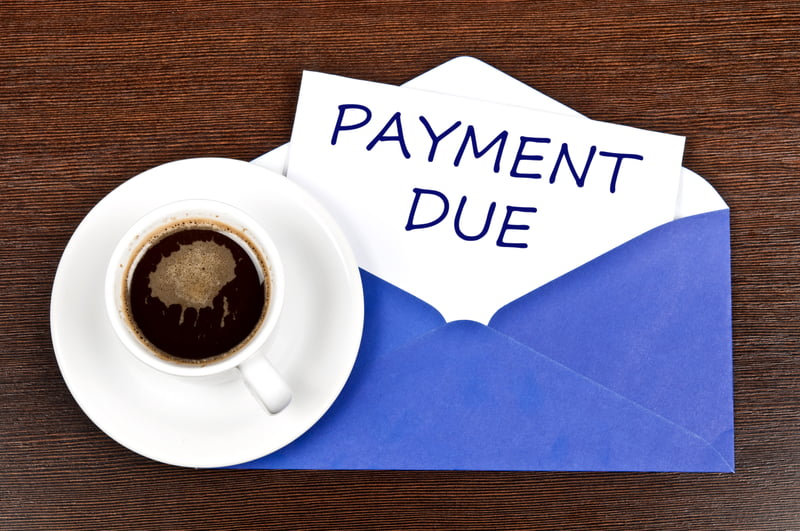Do you think landlords will sue to collect unpaid rent when the California eviction moratorium ends?
- Yes. (89%, 144 Votes)
- No. (11%, 17 Votes)
Total Voters: 161
The 2020 recession has cut jobs and incomes cut from over 1.3 million Californians as of November 2020, with the majority of job losses falling on renters. Unable to pay rent, these tenants have thus far been granted eviction protections. But as the missed rents accrue each month, landlords are panicking, and renters are wondering just how they’re going to pay them back.
That’s why firsttuesday proposes to grant anti-accrual protections to tenants suffering hardship, much like the anti-deficiency protections granted to California homeowners.
Consider a homeowner who purchases at the height of the market with a mortgage secured by their primary residence. After the market cools off and home values have dropped, they lose their job and are no longer able to make mortgage payments. They default and the lender forecloses on the property. However, the value of the foreclosed property is lower than the remaining mortgage debt (a condition called negative equity). To make up the difference, is the lender able to collect additional money from the foreclosed homeowner?
No. Due to California’s anti-deficiency protections on nonrecourse mortgages — purchase-money debt — the collection of any underpaid amount is limited by anti-deficiency rules to the value of the property at the time of payoff, in this case, foreclosure. [California Code of Civil Procedure §580b(a)]
Anti-deficiency laws have been on the books in California since the 1930s when homeowners were struggling to make ends meet during to the Great Depression. However, there are no equivalent anti-deficiency or anti-accrual laws in place for renters.
A landlord with a non-paying tenant may first deduct the cost of unpaid rent from the tenant’s security deposit. However, any additional unpaid rent may be pursued in small claims court. [Calif. Civil Code §§1950.5(a)(4); 1950.5(n)]
In most periods of California’s history, the absence of any anti-accrual laws is not such a big deal. But in 2021, many landlords are dealing with months and months of missed payments from tenants who are protected by the current eviction moratorium, now scheduled to run through the end of June 2021. Once the eviction moratorium ends, tenants with months of back rent will need to make a repayment plan with their landlord or face legal troubles.
However, anti-accrual legislation alone won’t solve our present problems under the eviction moratorium. In fact, a “free pass” on paying back missed rent may actually encourage renters to stay in place for longer or refuse to pay the landlord back even when they regain their job or otherwise gain access to money.
Further, while mortgage servicers require mortgage insurance in the case of default, landlords have no such security in place in case of tenant non-payment. For smaller, “mom and pop” landlords, non-payment and no remedies can be devastating. In fact, roughly two-thirds of renters who have been unable to pay rent during the ongoing recession have been tenants of these smaller landlords, according to U.C. Berkeley’s Terner Center for Housing Innovation.
For the anti-accrual plan to work with the current eviction moratoriums, there needs to be appropriate rules and end dates. There also needs to be funding available to assist landlords with non-paying tenants.
New legislation to protect both renters and landlords
California’s state legislature recently passed Senate Bill (SB) 91 and it is heading to the Governor’s desk at the time of this writing. SB 91 will use federal funds to cover 80% of the back-rent accumulated by qualified tenants from April 1, 2020 through March 31, 2021. In return for accepting the federal funds, the landlord is required to then forgive the remaining 20% of rent owed during that time.
To qualify, tenants need to have earned less than 80% of their area’s median income in 2020. The funds are to be administrated by the newly established Department of Housing and Community Development (HCD).
SB 91 will supplement AB 3088—the COVID-19 Tenant Relief Act of 2020 — which expires on January 31, 2021. Under AB 3088, tenants had until this date to pay back at least 25% of their rent owed, or else be subject to eviction when the federal eviction moratorium ends (previously scheduled to occur at the end of March 2021). SB 91 extends this deadline to June 30, 2021.
Other notable changes included in SB 91 are:
- extending the requirement for a mortgage servicer who denies a forbearance request to specify in writing the reason(s) why forbearance was not granted through September 1, 2021;
- extending the prohibition on commencing an action in small claims court to recover COVID-19 rental debt through August 1, 2021;
- limiting the award of attorneys’ fees when a tenant is brought to court for the repayment of COVID-19 rental debt through July 1, 2025; and
- re-categorizing COVID-19 rental debt as missed rental payments accrued between March 1, 2020 and June 30, 2021.
Stay tuned to firsttuesday for updates on this and other legislation impacting property management in California.
Real estate professionals: What do you think? Ought renters to be granted more anti-accrual protections similar to homeowners? Share your thoughts in the comments below.
Related article:
Change the law: Grant anti-accrual protections for residential tenants
















I have been paying my rent thru the pandemic but I lost my job about a month ago and fell behind but my landlord said that he will not work with me I had Covid and so did my wife so I fell behind on everything but never made the pandemic an excuse to not pay rent, What kind of an advise will you provide.
What if any agency can a landlord go to for assistance for unpaid rent?